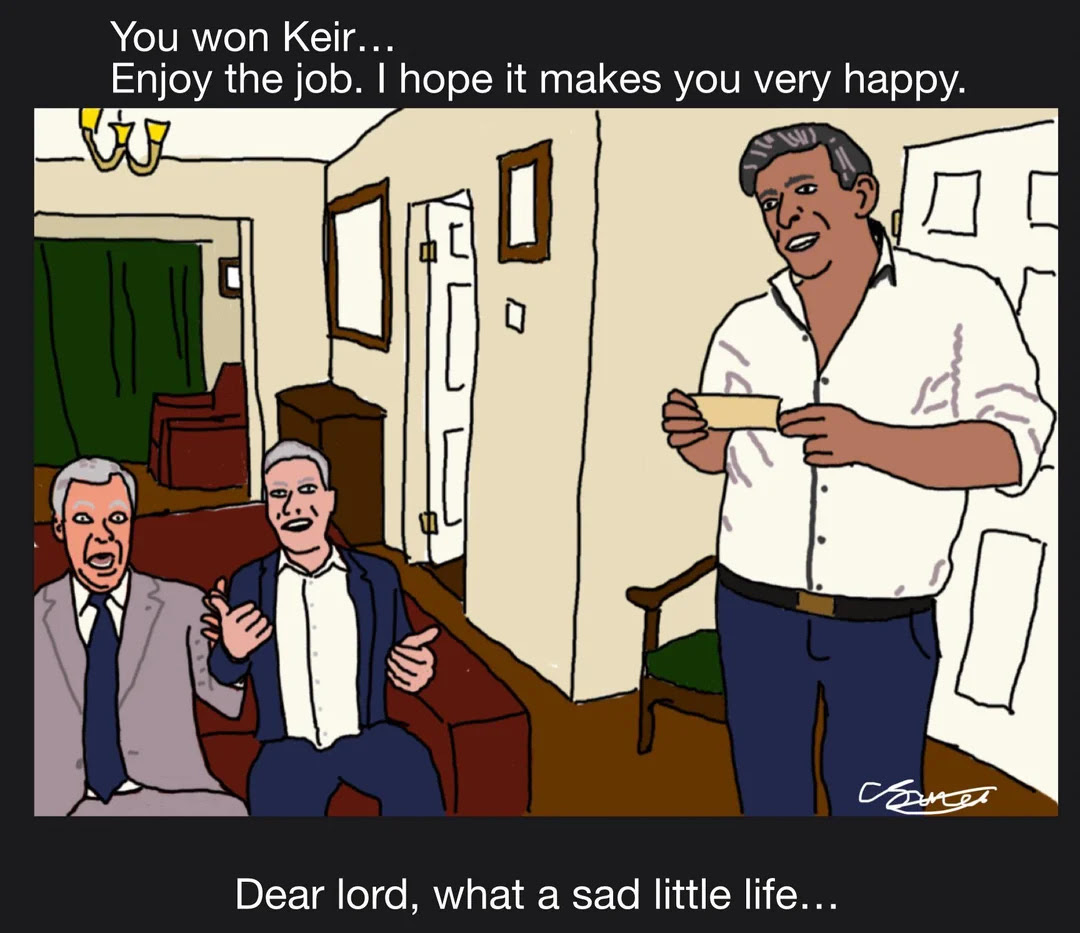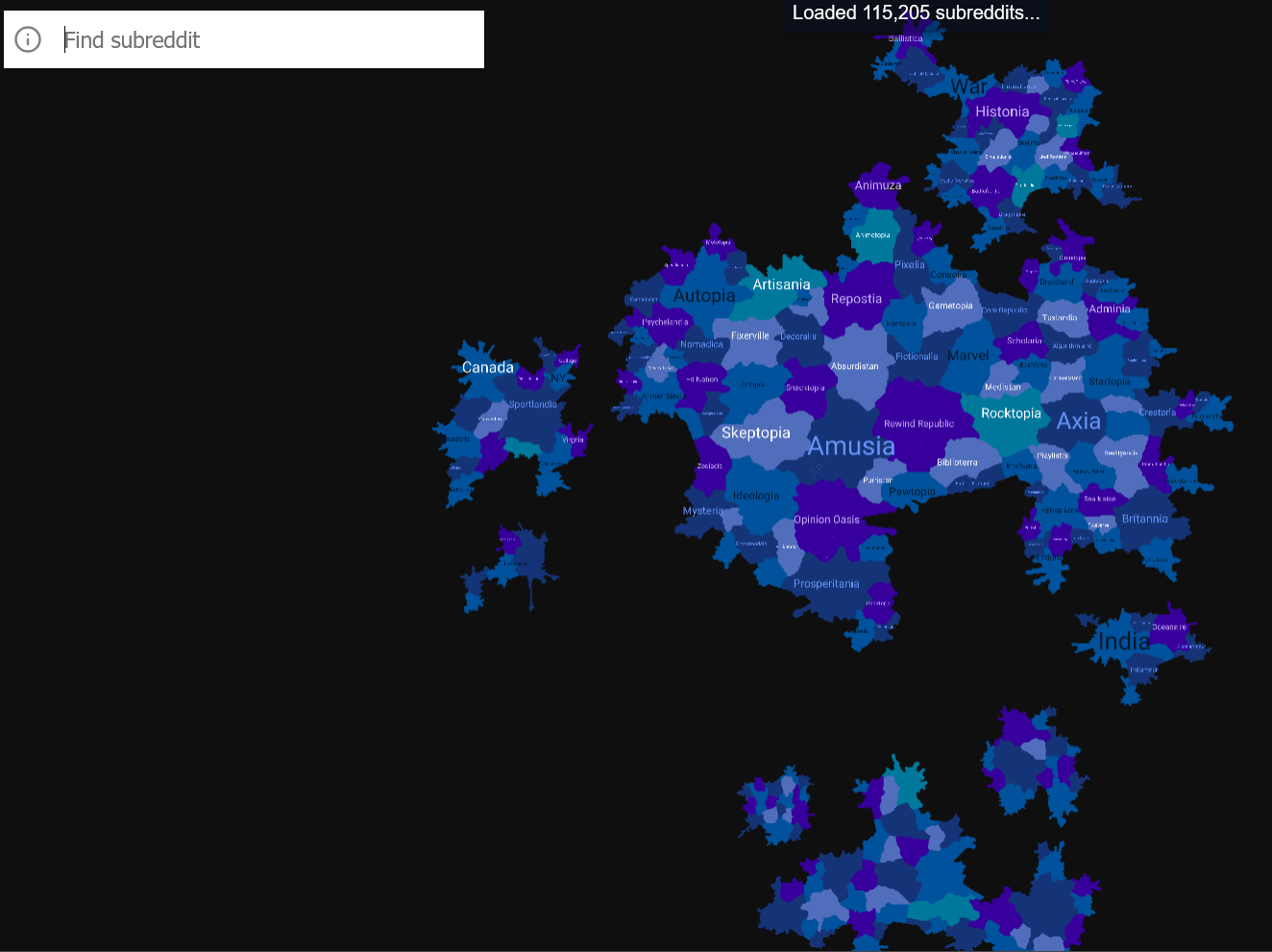Last week, I watched the full episode of Come Dine With Me that features the “What a sad little life” meme. I’d obviously seen the clip of the results on YouTube, but I’d never seen the events that led up to Peter’s epic explosion of barely concealed rage:
I ended up watching because
(whose newsletter I have recommended in the past and continue to recommend) is the other male contestant on that episode, and the only person not to feel Peter’s wrath in the iconic meltdown scene.I can’t say I learnt anything in particular from watching the full episode. It’s typical Come Dine With Me fare - the person who’s super-competitive but massively overestimates their own ability. The awkward conversations and questionable menu choices (not from Adam, I’m a big fan of breakfast burritos). It’s only really the iconic ending that marks it out as being so distinctive.
And it really is an iconic ending - as Adam highlighted in his post, the phrase “what a sad little life Jane” has been used in a whole range of contexts. In the UK, it’s a phrase that immediately resonates with a certain section of the reasonably online population.

Writing this piece made me wonder about the origins of the meme, how it developed over time, so I engaged in a little research. This is not exhaustive, and because we’re talking about an episode that aired nine years ago, the data isn’t so readily available. But Brandwatch enables access to tweets from 2016, so you can get a sense of some of the conversation.
Interestingly, the exact phrase “what a sad little life” only appears in its full form from October 2021 onwards (you can see the flatline then the spike below).
Google Trends shows a similar pattern, albeit with an earlier start date of searches:
Looking at the conversation around “Come Dine With Me” more broadly during this period shows that the episode did indeed generate conversation - it’s just we seemingly hadn’t yet alighted on the unifying, universal phrase of “what a sad little life Jane”. Journalist Luke Bailey, for example, celebrated the episode’s first birthday and generated a significant spike in engagement.
Looking further back at the conversation on the night the episode first aired is something of an exercise in nostalgia, as users took to Twitter to express their incredulity about what they were seeing on screen:
I was also fascinated to see, in and around the hot takes of Peter and Jane, a more general, gentle collection of tweets about Come Dine With Me. As anyone who spent time watching TV in the UK during the late 00s/early 10s will likely know, Come Dine With Me was ideal “accidental binge” fodder.
You’re tired or hungover on a weekend, you idly browse the TV, put one episode of Come Dine With Me on (or Four In A Bed), and the next thing you know, three hours have passed while you enjoy a full tour of the Derbyshire countryside via people’s dining rooms.
There’s an innate vibe to those relatively generic posts, a vibe that isn’t interested in engagement farming or trying to achieve “main character” status. It’s more of a simple desire for community. A basic human tribal need to express “I do this on a semi-regular basis. Does anyone else do it too?”.
X is no longer the default space for such expressions. If an episode of a TV show aired that generated a reaction like “what a sad little life Jane”, we’d be much more likely to take to our WhatsApp chats or Stories to express our incredulity and share our favourite memes.
However, some people would argue that we still have one public space where such signs of community continue to thrive. And that’s Reddit.
I read this piece in The Atlantic last month (thanks to my esteemed colleague Ben Marshall for sharing), and its sentiment has stuck in my head rent-free ever since. Author Adrienne LaFrance engages in her own form of internet nostalgia, similar to how I just time-travelled back to 2016 Twitter. All her points are spot on - that there may still be darker sides to Reddit, depending on which subs you visit, but its fundamental humanity, thanks to its community of mods, means it:
“has developed a reputation as a force for good, or at least a force for reminding people of the promise of a decentralized open web.”
The observation that truly stuck with me was from LaFrance’s conclusion, where she argues that:
“The only two questions that people ever really ask on Reddit, if you think about it, are these: Am I alone? Am I okay?”
Like a piercing insight, it’s an observation that I can’t stop thinking about. It resonates with so much of my Reddit experience, the posts I see in my feed from places such as the Radiohead and left-handed guitarists subs.
“Am I alone” most often translates, in my experience, into “Am I alone in thinking…”. And the question tends to express a sentiment the user feels is under-expressed. This is common in music threads: “Am I the only person who thinks [x song by a massive band] is underrated?”
It’s such a common question, I ended up making a playlist of bands and songs I thought could be described as “underrated” for my mixtape group.
Another trend I see often is the desire for validation, an expression of Adrienne LaFrance’s “Am I okay?” observation. In the subreddits I frequent, this is most commonly linked to Reddit’s modern role as a product recommendation hub.
Users post a picture of the guitar, amplifier or pedal they’re considering buying and ask if they’re making a wise choice (Am I okay buying this product?). The validation isn’t always universal - in guitar-related subs, someone will always say, “depends on what kind of music you’re playing”. Someone else will always suggest visiting a guitar shop to try said product out before making an investment. But there’s always a multiplicity of views and a generally positive outcome.
Clearly, Reddit is a huge platform with a multitude of different subreddits (this map aims to turn this diffuse collection of sites into physical geography:
Your experience will differ depending on the subs you frequent. And like any very large online platform, there’s undoubtedly unpleasant material you can stumble on if you spend too much time on the platform.
But for now, Reddit successfully straddles the line between “hobbyist independent communities” and “very large listed platform focused squarely on growth”. From a communications POV, there’ve been a number of updates to improve brand safety when advertising, and the competition for ad space is still relatively low, making it a highly cost-effective option.
The long-term challenge for Reddit will be to continue to make acceptable trade-offs and keep the circle as square as possible. Few other platforms have managed it, as entropy inevitably kicks in (Twitter) or an ill-advised pivot to keep up with the Joneses (Instagram).
Perhaps the biggest challenge is a more universal one - namely, homogeneity. Ryan Broderick & Adam Bumas shared the top five biggest posts on Reddit last week as part of their monthly Garbage Intelligence series:
The analysis showed the posts came from the biggest subs and, as a result, were relatively generic clips you could easily see on any other app.
This arguably isn’t a Reddit problem; it’s more of a fundamental internet infrastructure problem. Platforms prioritise keeping users within their ecosystems (whether that’s Instagram or Disney+).
The best way to do that is with posts and shows that are already popular, thus creating a self-selecting set of rarely refreshed criteria. Niche interests remain, but they remain niche - sticking to your Stories, your subreddits, your WhatsApp chats.
The worry I have is if we had another “what a sad little life Jane” moment in popular culture, would it be able to make the leap from “relatively niche WhatsApp share” to “full-blown celebratory meme status”? Or is that status now off limits for the majority?







